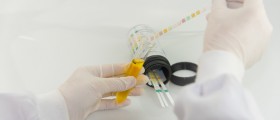
Prostatitis is an inflammation of the prostate, a gland that only men have. It can be acute, meaning with a sudden onset, or persistent, which is called chronic prostatitis. Prostatitis can be infective or non-infective.
Acute prostatitis is almost always infective, caused by bacteria. Chronic prostatitis is also called chronic pelvic pain syndrome.
Causes of acute prostatitis
Acute prostatitis is usually caused by bacteria. The source of infection can by the bacteria that are normally present in the bowel, passing from there to the skin surrounding the anus, where they multiply. From there they can easily enter the urethra and climb to the prostate or anywhere else in the urinary tract, including bladder and kidneys. This is one of the common causes of acute prostatitis.
Urine infection with cystitis is a common urinary tract infection. Whenever the urine is not adequately evacuated from the urinary tract, the risk of infection increases. However, prostatitis may occur even if the other parts of the urinary tract are not affected by an infection.
Other, less common causes of acute prostatitis may include damage to the prostate, for example after surgery or improperly done prostate exam, introduction of a cathether to the urethra, and the bacteria that came through the bloodstream from the other parts of the body.
Symptoms of acute prostatitis
The main symptoms of acute prostatitis include pain in the prostate, which can be quite intense and felt at the base of the penis, around the anus, below the pubic bone and in the lower abdomen, painful bowel movements, pain or burning sensation when urinating, frequent urge to urinate, blood in urine, fever and discharge from the penis.
Treatment for acute prostatitis
The main treatment option for acute prostatitis are antibiotics, a four-week course of them, which should not be interrupted before time, even if the symptoms subside. Doctors usually prescribe broad-spectrum antibiotics before the results of urine tests arrive. When the results are ready, the doctor may change the type of the antibiotics to the kind that is the most effective for the specific bacterial type.
During the course of antibiotics, it is also recommended to take ibuprofen or paracetamol to ease the pain and lower the fever.
Laxatives can also be used to soften the stool if the hard stool causes pain during bowel movement.
Acute prostatitis usually clears after a course of antibiotics is completed. If the infection is not completely solved, it may lead to chronic prostatitis. Aside from chronic prostatitis, potential complications, which are not very common, may include prostate abscess and acute urinary retention.

















Your thoughts on this
Loading...